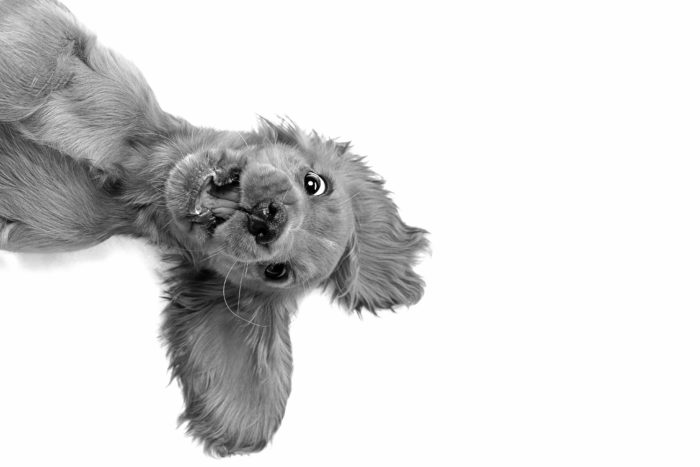domesticate1
do·mes·ti·cate
Pronunciation: do-‘mes-ti-“kAt
1: to bring into domestic use: ADOPT
2: to adapt (an animal or plant) to life in intimate association with and to the advantage of humans.
3: to make domestic: fit for domestic life
4: to bring to the level of ordinary people do·mes·ti·ca·tion /-“mes-ti-‘kA-sh&n/ noun
Dogs are not born “domesticated,” but with a good plan and some know-how, we can do a lot to ensure their success in life.
There are behaviors that dogs will do naturally that can cause problems. They may be preventable if you spend the time to teach your pup a safer alternative.
The aim of the exercises in this section is to help prevent predictable dog behaviors, from becoming problematic for us.
We work now to prevent behaviors that we may see develop over the coming months and years. Think of it as insurance for the future.
Think prevention versus cure.
Never leave a baby or child unattended with a puppy or dog: not even for a fraction of a second.
It is very important to include children in your puppy’s upbringing. If you have children, you have a responsibility to them regarding the puppy and you have a responsibility to the puppy regarding the children.
4.7 Million people suffer from dog bites each year. Children make up more than 75% of all dog bite victims.
If you don’t have children, make a point to find some and introduce your puppy to them. Even from a safe distance, this is a great socialization goal. You need to ensure that your puppy learns about kids. Teach him how to behave around children. If you have kids, you need to teach them an acceptable way to handle and interact with the puppy.
Often a kid’s behavior will amp up a puppy and get them chasing, jumping, and nipping. Kids move erratically and make high-pitched noises. A child’s energy excites a puppy. Kids can also be rough with animals. Be sure that your children (or any children that are involved with your puppy) are 100% supervised by a responsible adult. It is unfair for a dog to suffer the wrath of a child who shouts and yanks his leash, or handles the puppy roughly.
Take the time to teach your children and any other children that are coming in contact with your puppy how to interact with him. Just as you teach your pup in short sessions, do the same with the kids, too long could prove to be too much.
The family dog (of the victim) causes over 40% of injuries. The face, head, and neck area are the most frequent sites of injury.
Use a calm, quiet voice with the puppy.
Pet with one hand instead of hugging with both.
Let the puppy stay on the ground. No need to pick him up.
Sit on the ground and see if he is interested in interacting with you.
Give the pup space, and stay away from, if the pup is in his crate, bed, or eating or chewing on a chew.
The pup is not their play toy, but another living creature that must be respected and treated kindly.
Teach them that dogs do feel pain.
If you have children, involve them in the raising of the puppy in a way that is reasonable and practical. Set the kids and the pup up for success; keep the sessions short, simple, and fun.
While some dogs may not mind being treated like a plaything, a pillow, or a horse, some children may learn poor skills around dogs that are more tolerant. It is unreasonable to think a child can judge between dogs that will tolerate this type of behavior and dogs that will not. Just because your dog is a sweetie pie does not mean you should let your children do these things. It is not appropriate for children to treat the dog roughly.

If you walk to school with your children regularly, if it is appropriate, taking the puppy along can be a great way of socializing the pup with other children and the activity of a school ground.
Teach the pup to keep four paws on the ground as he meets children. Ask that the children behave in a way that is gentle to the puppy, and have them offer the puppy a treat for standing.
You may already know when you get your puppy that at some point over the next few years you will want to have a baby. Take that into consideration now while socializing and kid-proofing your puppy. Find helpful friends or family who have a baby or children and introduce your pup to them.

